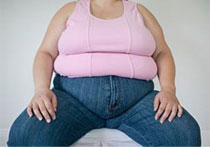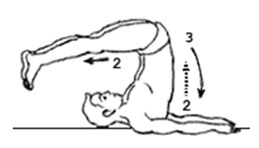yogainstructor.in


- Basics of Yoga
- Yoga for Weight loose
- Yoga for Relaxation
- Yoga for Glowing Skin
- Yoga for Kids/Childrens
- Yoga for Men
- Yoga for Women
- Yoga for Female
- Yoga for Obesity
- Yoga for Ashthama
- Yoga for Diabetis
- Yoga for Increase Memory
- Yoga for Increase Height
- Yoga for Shape
- Yoga for Gas and Acidity
- Yoga for beginner
- Types of Yoga
- Yoga for Heart Disease
- Health And Yoga Theory Articles
- Yoga Asanas for Weight Loss
- Yoga for Corporates


Yoga for Obesity
What is obesity?
An obese person has accumulated so much body fat that it might have a negative effect on their health. If a person's bodyweight is at least 20% higher than it should be, he or she is considered obese. If your Body Mass Index (BMI) is between 25 and 29.9 you are considered overweight. If your BMI is 30 or over you are considered obese.
Obesity Symptoms
 Patient's appearance is sufficient to arrive at a diagnosis in most cases. Obesity is determined based on an individual's body mass index (calculated with reference to the person's height and weight).
Patient's appearance is sufficient to arrive at a diagnosis in most cases. Obesity is determined based on an individual's body mass index (calculated with reference to the person's height and weight).
The following are the most common symptoms that indicate an adolescent is obese. However, the patient's appearance is sufficient to arrive at a diagnosis in most cases, determined by the persons BMI (body mass index) depending on weight to height, though each adolescent may experience symptoms differently. Symptoms may include :
- Large body frame.
- Difficulty in doing daily activities.
- Lethargy
- Breathlessness
- Disproportionate facial features
- Breast region adiposity - (sagging fat cells) in boys
- Big belly (abdomen), sometimes marked with white or purple blemishes
- Male external genitalia may appear disproportionately small
- Early arrival of puberty
- Flabby fat in the upper arms and thighs
- Knock-knees (Genu valgum) is common
- Your Emotions and Habits : Overeating is easy in our culture today. Many factors influence eating behavior, including emotions, habits, and the availability of food.
- Your Lifestyle : Modern conveniences-such as elevators, cars, and the remote control for the television-cut activity out of our lives.
- Your genes : If one of your parents is obese, you are 3 times as likely to be obese as someone with parents of healthy weight.
- Your friends and family : If they eat a lot of high-fat or snack foods, eat at irregular times, and skip meals, you probably will too. And if they are not physically active, you may not be either.
Other things influence your weight and whether you are physically active, including : - Low self-esteem : Being overweight or obese may lower your self-esteem and lead to eating as a way to comfort yourself. Repeated failure at dieting also can affect your self-esteem and make it even harder to lose weight.
- Emotional concerns : Emotional stress, anxiety, or illnesses such as depression or chronic pain can lead to overeating. Some people eat to calm themselves, to avoid dealing with unpleasant tasks or situations, or to dampen negative emotions.
- Trauma : Distressing events-such as childhood sexual, physical, or emotional abuse; loss of a parent during childhood; or marital or family problems-can contribute to overeating.
- Alcohol. Alcohol (beer and mixed drinks) is very high in calories.
- Medicines or medical conditions : Some medical conditions and medicines may also cause weight gain. Examples include having Cushing's syndrome or hypothyroidism or taking certain antidepressants or corticosteroids.
The symptoms of obesity may resemble other medical problems or conditions. Psychological disturbances are also very common as well as stress, social pressure and doing developmental chores. Always consult your adolescent's doctor for a diagnosis.
Obesity Reasons
Obesity is a complex disease for which no single cause or cure exists. You gain weight when you take in more calories than you burn off. But obesity is influenced by many other factors, including :
Various ways to get rid of Obesity

Practice of Yoga and various exercises
- Regular exercise like running, swimming etc.
- Yogasanas like Paschimotannasana, Saral Hasta Bhujangasana, Sarwangasana, Halasana, Dhanurasana, Veerasana, Trikonasana, Ardha Matsyendrasana etc.
- Along with Yogasanas Sun salutation is very effective for obesity reduction, also Pranayama, cleansing processes like agnisar, uddiyan bandha etc helps
Food Habits
- The lunch and dinner timings should be fixed
- The time difference 2 meals should be 4 hours
- Low fat meal, with fiber rich vegetables and fruits should be taken.
- Reduce fats, excess calories, sweets, milk, butter, cheese etc in meals.
Other Useful Habits
- Do not sleep for more than 6 to 7 hours
- Try to stop addictions such as smoking, drinking alcohol or any other drugs.
- Taking help from dietician, one should fix the daily diet schedule.
- If possible take massage and steam bath regularly.

